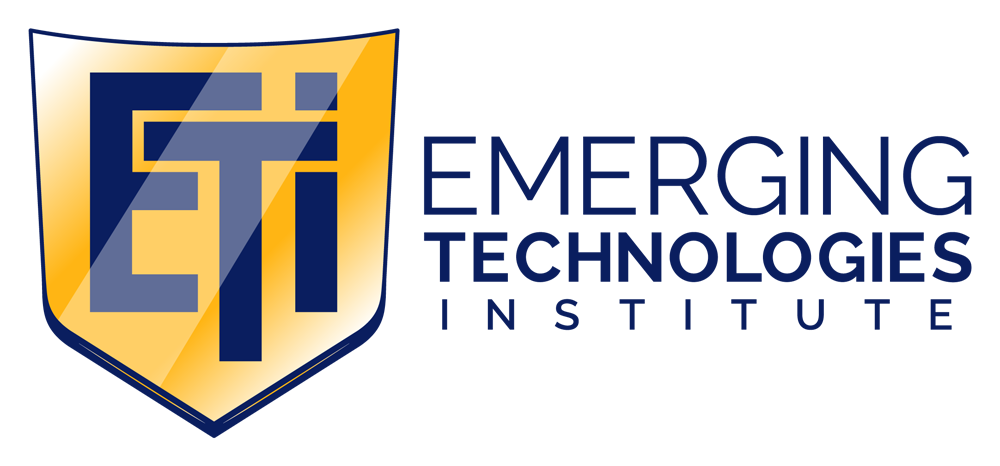DevOps Engineer to Cloud Architect
ABOUT THE PROGRAM
DevOps is an abbreviation for a modern methodology that describe practices and technologies (automated and manual) that support tight integration between the application development and production (including testing and quality) environments. By integrating the traditional isolated environments, the ALM process supports an open communications methodology, and allows for controlled automated processes within the entire application lifetime.
This program is designed for:
IT professionals who manage and control all aspects and roles within the software application development lifecycle
IT developers
Application test and deployment specialists
Professionals involved in application production
This program is self-paced. Self-paced programs create a unique learning experience that allows students to learn independently and at a pace that best suits them.
CERTIFICATION
This course fully prepares students to take the following certification exam:
AZ-400 Microsoft Azure DevOps Solutions
The cost of the certification exam is included in the tuition.
The certification exam is not a requirement for graduation. Vendor certifications are at the student’s expense. Vouchers may be available depending on the student’s funding and financial aid.
Tuition: $2,980
Duration: 150 Hours (110 hours + 40 hours Virtual Practice Lab)
Includes e-books, virtual practice labs, mentoring, and test review questions.
Students will have full access to the program for one year.
Prerequisites: HS diploma/GED, basic computer skills and familiarity with the internet
To learn more about ETI’s tuition and financial aid options, click here.
COURSE Outline
DevOps Engineer Track 1: Software Developer
10 hours lecture + 8 hours virtual practice lab
Mentoring
DevOps Mindset: DevOps Principles & Implementation Approach
DevOps Mindset: DevOps Implementation Using Tools
The Language of DevOps: DevOps Principles & Practices
The Language of DevOps: DevOps Tools & Processes
DevOps Agile Development: Agile Processes for DevOps
DevOps Agile Development: DevOps Methodologies for Developers
DevOps Smart Failure: Fail Fast & DevOps
DevOps Collaboration Tools: Tools for Continuous Integration
DevOps Collaboration Tools: Tools for Continuous Delivery
Final Exam: Enterprise Developer - DevOps
DevOps Engineer Track 2: DevOps Tools, Frameworks, and Capabilities
17 hours lecture + 8 hours virtual practice lab
mentoring
DevOps Tools: Selecting the Right Tools
Using Git for DevOps: Using Git Effectively
Using Git for DevOps: Managing Conflicts & Effectively Using Git Workflow
Using Docker for DevOps: Introduction
Using Docker for DevOps: Configuration for Continuous Delivery
Ansible: Ansible for DevOps Provisioning
Ansible: Continuous Delivery and Monitoring Using Ansible Playbook and Tower
Chef for DevOps: Managing Infrastructure Using Chef
Chef for DevOps: Automate Infrastructure Using Chef Tools & Templates
Puppet for DevOps: Installing & Working with Puppet
Puppet for DevOps: Working with Puppet Bolt & Continuous Delivery for PE
Jenkins for DevOps: Jenkins Configuration for DevOps
Jenkins for DevOps: Automated Testing & Advanced Jobs using Jenkins
SaltStack for DevOps: Working with SaltStack Components
SaltStack for DevOps: Configuration Management
Final Exam: DevOps Developer
DevOps Engineer Track 3: DevOps Lead
13 hours lecture + 8 hours virtual practice lab
Mentoring
Best Practices for DevOps Implementation
DevOps Cloud Automation: AWS DevOps Tools
DevOps Cloud Automation: Advanced AWS Pipelines and DevOps Using Azure
DevOps Cloud Automation: DevOps with Google Cloud Platform
DevOps Automation: Configuration Management
DevOps Automation: Delivery Mechanism
CI/CD Implementation
DevOps with Docker: Container Management
DevOps with Docker: Implementing DevOps Using Docker
DevOps with Docker: Management in the Cloud
DevOps Continuous Testing: Testing Approaches
DevOps Continuous Testing: Testing Methodologies
Final Exam: DevOps Lead
DevOps Engineer Track 4: DevOps Architect
9 hours lecture + 8 hours virtual practice lab
Mentoring
Scaling DevOps: Pipelines at Scale
Scaling DevOps: Infrastructure at Scale
Enterprise DevOps with Docker
DevOps Continuous Feedback: Implementation
DevOps Continuous Feedback: Loop Tools
DevOps Security Considerations: Securing Pipelines
DevOps Security Considerations: DevSecOps Principles
Final Exam: DevOps Engineer
AZ-400 Microsoft Azure DevOps Solutions
16 hours
Migration and Consolidation Strategy for Tools
Design and Implement Agile Work Management Approach
Design a Quality Strategy and Secure Development Process
Tool Integration
Version and Source Control
Code Flow and Mobile DevOps
Application Configuration and Secrets
Manage Code Quality and Security Policies
Azure DevOps Infrastructure
Design and Set Up Release Strategy and Workflow
Implement Deployment Patterns
Dependency Management and Security Compliance
Infrastructure as Code and Security Compliance
Implement Infrastructure as Code
Implement Continuous Feedback
Cloud Architect Track 1: DevOps Engineer
12 hours lecture + 8 hours virtual practice lab
Adopting the DevOps Mindset
Promoting DevOps Discipline: Practices for the Enterprise
Managing Projects Using Kanban
Agile & DevOps: Adopting Agile Methodologies
Adopting the DevOps CI/CD Paradigm
DevOps & AWS: CloudOps Implementation
CloudOps with Azure DevOps Tools
CloudOps with Google Platform Tools
CloudOps with Infrastructure as Code
Final Exam: DevOps Engineer
Cloud Architect Track 2: Cloud Engineer
13 hours
Adopting IT Automation
Applying Design Patterns in DevOps & CloudOps Automation
Using AWS to Set Up DevOps & CloudOps Automation Frameworks
Applying Automation Using AWS Tools
Azure DevOps: Repository & Pipeline Management
Managing Agile Lifecycle
CloudOps with Google Cloud Platform
DevOps Automation Across Platforms: CloudOps for Multi-cloud Deployments
DevOps Automation Across Platforms: Working with Multi-cloud Tools
Final Exam: Cloud Engineer
Cloud Architect Track 3: CloudOps Engineer
14 hours
DevOps to CloudOps for Multi-cloud
Implementing IaaS & Orchestration for Multi-cloud Environments
CloudOps Interoperability: Modeling Cloud Computing for Integration
CloudOps Interoperability: Inter-cloud Integration& Implementation
Docker & Multi-cloud: Managing Multi-cloud with Docker
Docker & Multi-cloud: Multi-host, Multi-cloud Management with Docker Enterprise
Managing Multi-cloud Containers with Kubernetes
OpenStack in CloudOps: Managing Multi-cloud with OpenStack
OpenStack in CloudOps: Automation
Securing CloudOps Deployments: Security Standards for Multi-cloud
Securing CloudOps Deployments: Implementing Multi-cloud Security
Implementing SD-WAN to Optimize Environments
Final Exam: CloudOps Engineer
Cloud Architect Track 4: Cloud Architect
6 hours
Role of a Cloud Architect
Cloud Transition: Adopting & Moving to Cloud & Multi-cloud Environments
CloudOps Solutioning Strategies
Applying the Explainability Approach to guide Cloud Implementation
Cloud Future: Adapting Cloud Innovation
Final Exam: CloudOps Architect

